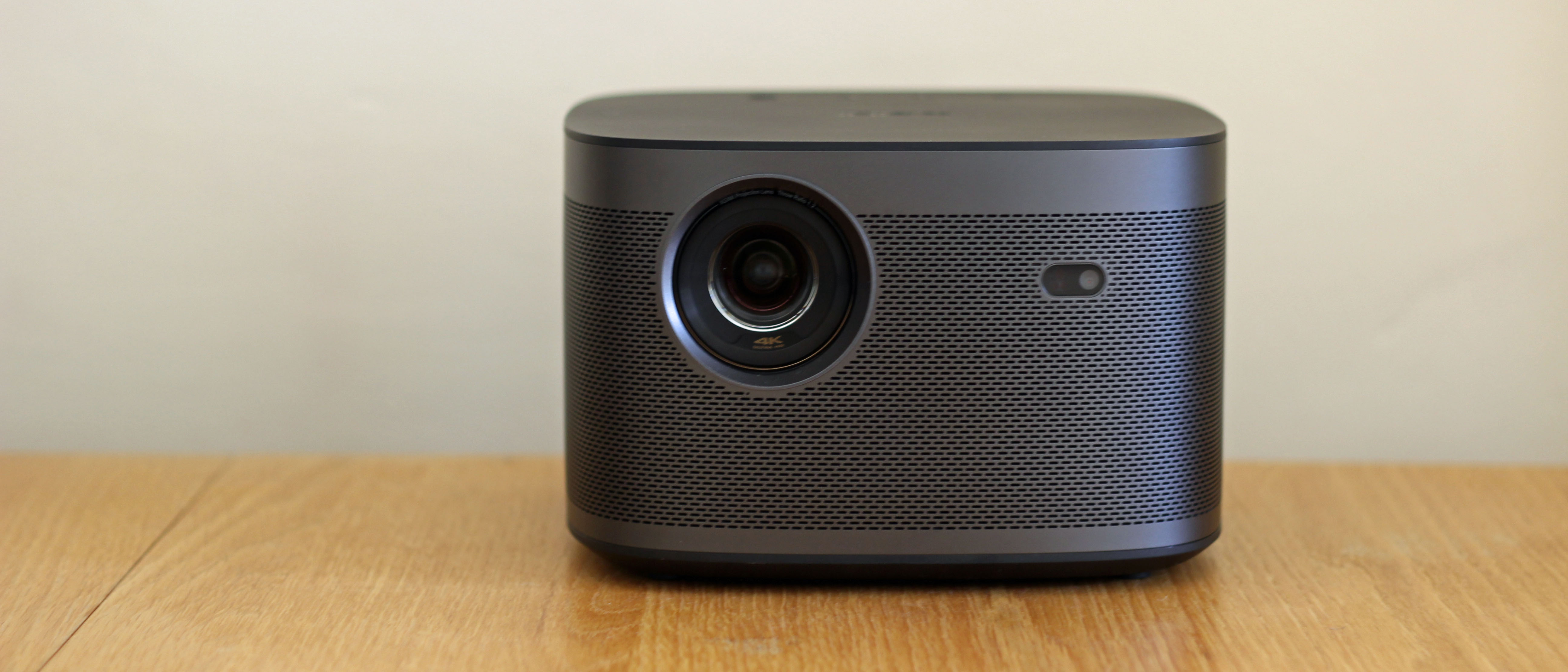TechRadar Verdict
The XGIMI Horizon Pro is an exemplar 4K projector, with an incredibly sleek design and flexible projection distance. Intense brightness will ensure images are visible even in the daytime, and that HDR performance excels at night. Bar a couple of hiccups around Netflix support and power controls, and issues upscaling from SD and HD, there's plenty to like here.
Pros
- +
Great 4K performance
- +
Sleek, premium design
- +
Affordable price
Cons
- -
Upscaling issues
- -
Grainy HD images
- -
Lapses in streaming support
Why you can trust TechRadar
One minute review
XGIMI’s Horizon Pro is its flagship 4K projector, and for good reason. With impressive 2,200 lumens brightness, excellent 4K recreation and a stunningly-designed casing, it’s a joy both to handle and to watch its images in action – albeit with a handful of exceptions.
The Horizon Pro really excels with native 4K content, and will work best as a key part of your home theater system, ideally with 4K Blu-rays (or at least high quality streams). Its image quality can be shockingly close to what you’d see on a quality flatscreen, with exceptional brightness control – an area that so many projectors fall short in. The flexible 40-300 inch projection size also means you can easily tailor the image to your home, too.
The built-in audio is more than capable for a projector, while the sleek metal remote and fetching black casing of the beamer itself are far more premium than the price point would suggest.
For everyday users, though, SD and HD upscaling really isn’t very impressive, with on/off grain, image artefacts, and color distortion creeping in when you’re not feeding the Horizon Pro quality sources. As XGIMI’s first luxury projector range, this misstep is understandable, and this won’t be a deal-breaker for all – especially those relying on 4K sources – but it does tarnish what other might have been a five-star projector. If you plan on watching Full HD content most of the time, the cheaper Horizon model (without the ‘Pro’) may be a better bet.
- Check out the best projectors and best outdoor projectors out there
Price and availability
The Horizon Pro will be available to pre-order starting May 10. It retails for $1,699 / £1,699 – compared to the $1,099 / £1,099 price tag of the HD/SDR model (called simply ‘Horizon’).
The Horizon Pro seems like good value compared to some 4K projectors out there, though opting for DLP long-throw projection rather than ultra-short throw laser projection keeps the cost down with equivalent picture quality (more on that later).
Both the Horizon and Horizon Pro are expected to launch June 21, with preorders beginning May 10.
Sign up for breaking news, reviews, opinion, top tech deals, and more.
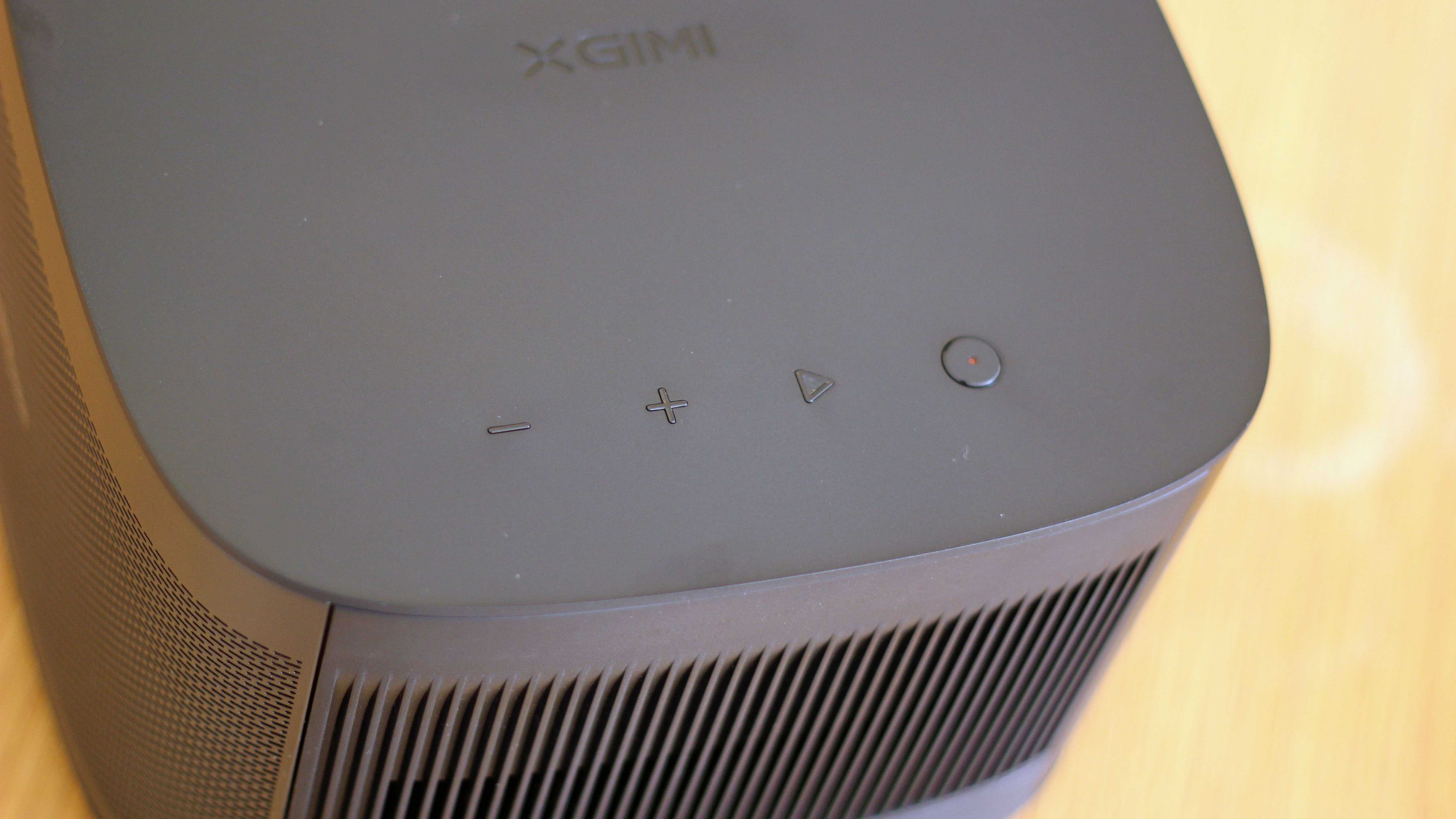
Design and features
- Sleek metal design
- No Netflix or Disney Plus
- Two HDMI ports (but not HDMI 2.1)
The design is undoubtedly the most impressive thing about the Horizon Pro. Despite its reasonable price point, it’s a beamer that feels incredibly premium, with a black metal finish and tasteful wraparound grille covering the speakers along the side. You’ll find touch controls along the top of the projector, which are a pleasure to use, as well as two HDMI 2.0 ports for plugging in streaming devices or consoles.
It’s pretty compact, measuring 8.2 x 8.6 x 5.4 inches, and weighing just 6.4lbs – making it relatively easy to move between rooms, or make use of the incredible auto-keystone correction, which swiftly shifts the direction and slant of the image depending on the angle at which the Horizon Pro is facing the wall.
You have to plug in an external battery, which helps to keep the size of the beamer itself down. (We did have some issues turning the projector on at times, but unplugging and replugging at the mains always fixed this issue.)
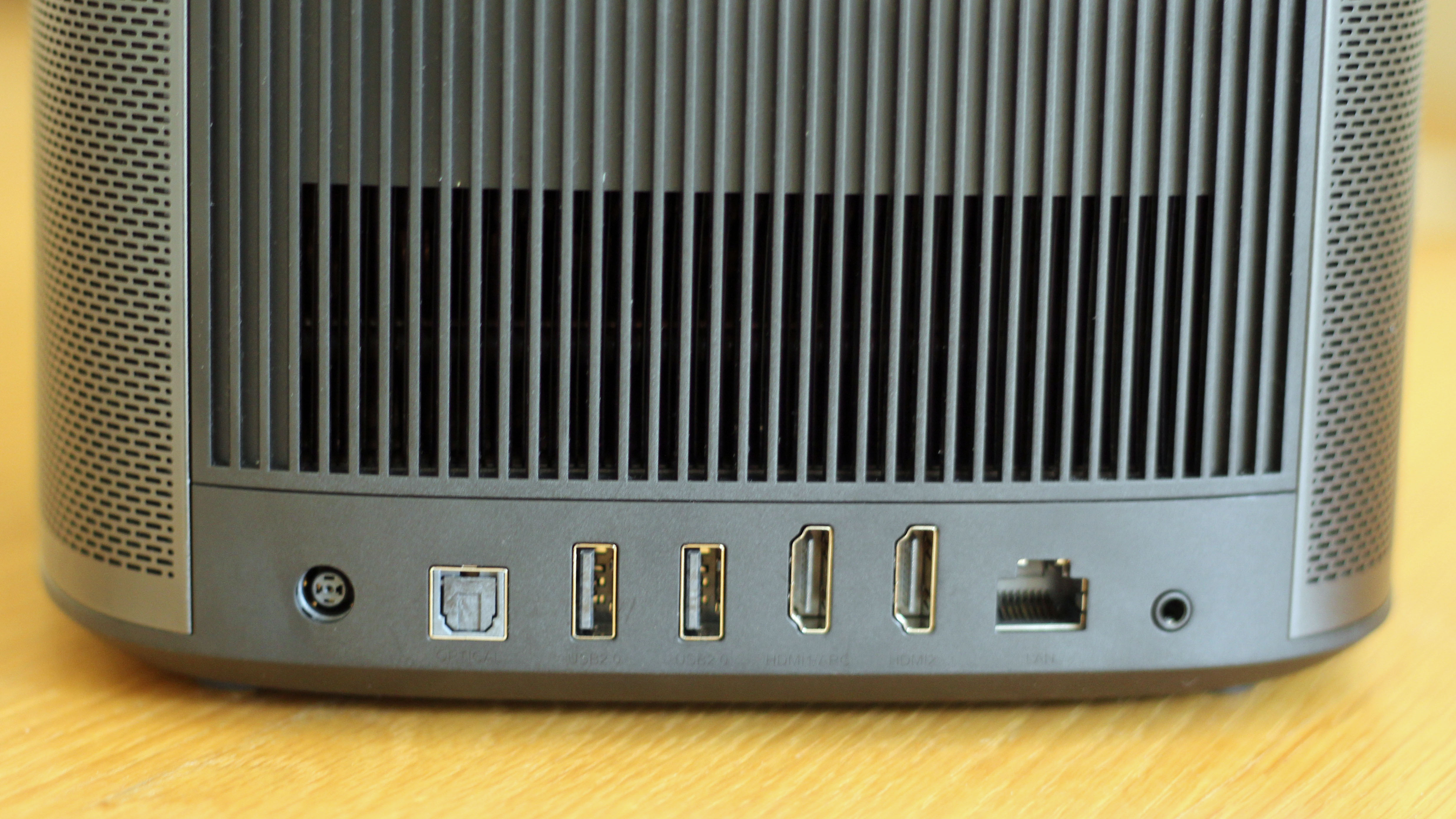
The slim remote is a masterclass in sleek design, with a metal casing that stays cold to the touch and has the good sense to limit things to a handful of buttons (power, Google Assistant, settings, home screen, return, and volume controls). The pull-out mechanism for the batteries is a bit flimsy, mind, and you’ll have to be careful to reinsert it correctly.
As a short throw projector you’ll only need to keep it a few feet away from a wall or projector screen for a good image – whether that’s behind your sofa or in front of you – though you’ll need an ultra-short throw model if you want it right up against the wall.
The Android TV platform is relatively straightforward, and will prove quicker to get started on with an Android phone. It prioritizes Google services (Play Store, Google Assistant, Google Cast, YouTube) and supports Amazon Prime Video. It doesn’t, however, support Netflix or Disney Plus, which are two key services in today’s streaming market. You can technically access Netflix by downloading the XTV manager application, we’re told, though we were unable to setup an account for this, and it may be simplest to use a streaming device that comes with support directly.
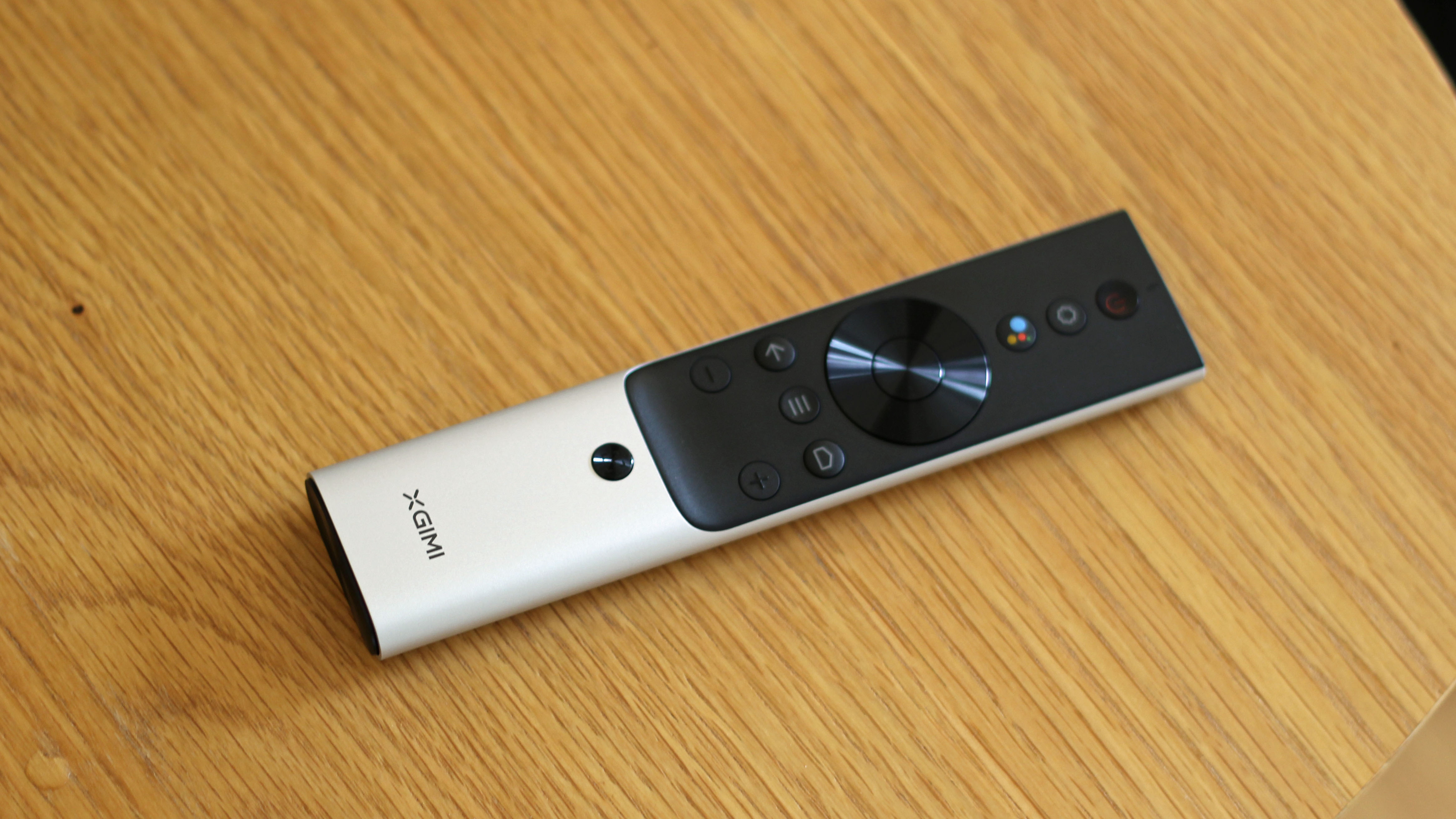
Picture quality
- Impressive 4K performance
- Powerful 2,200 lumens brightness
- Middling, grainy upscaling
The Horizon Pro is a projector that fares best with the best sources. 4K HDR content looks great here, with a detailed, cinematic picture to really elevate those late-night movie sessions.
The specified 2,200 lumens brightness might not be as high as some other models in our best projectors guide, but the exceptional brightness control of the Horizon Pro mitigates this, ensuring that light lands where it needs to, and that even daytime viewing affords decent visibility. For the best experience, of course, you’ll want to close the curtains or save your movie plans for the evening, and bright, direct sunlight will banish portions of the image, but the Horizon Pro still fares better than most.
Things aren’t quite as rosy when it comes to upscaling from low-res sources, though. HD sources will often come with a layer of grain – and which comes and goes pretty inconsistently, proving more distracting than if it was there all of the time. The upscaling from SDR fares similarly, often adding a harsh reddish tinge, especially in low-lit scenes or those showing the light of a campfire.
The Horizon Pro technically supports 3D content too, if you’re into that sort of thing. You won’t get the likes of HDR10+ or Dolby Vision though, these HDR standards being quite rare on projectors these days.
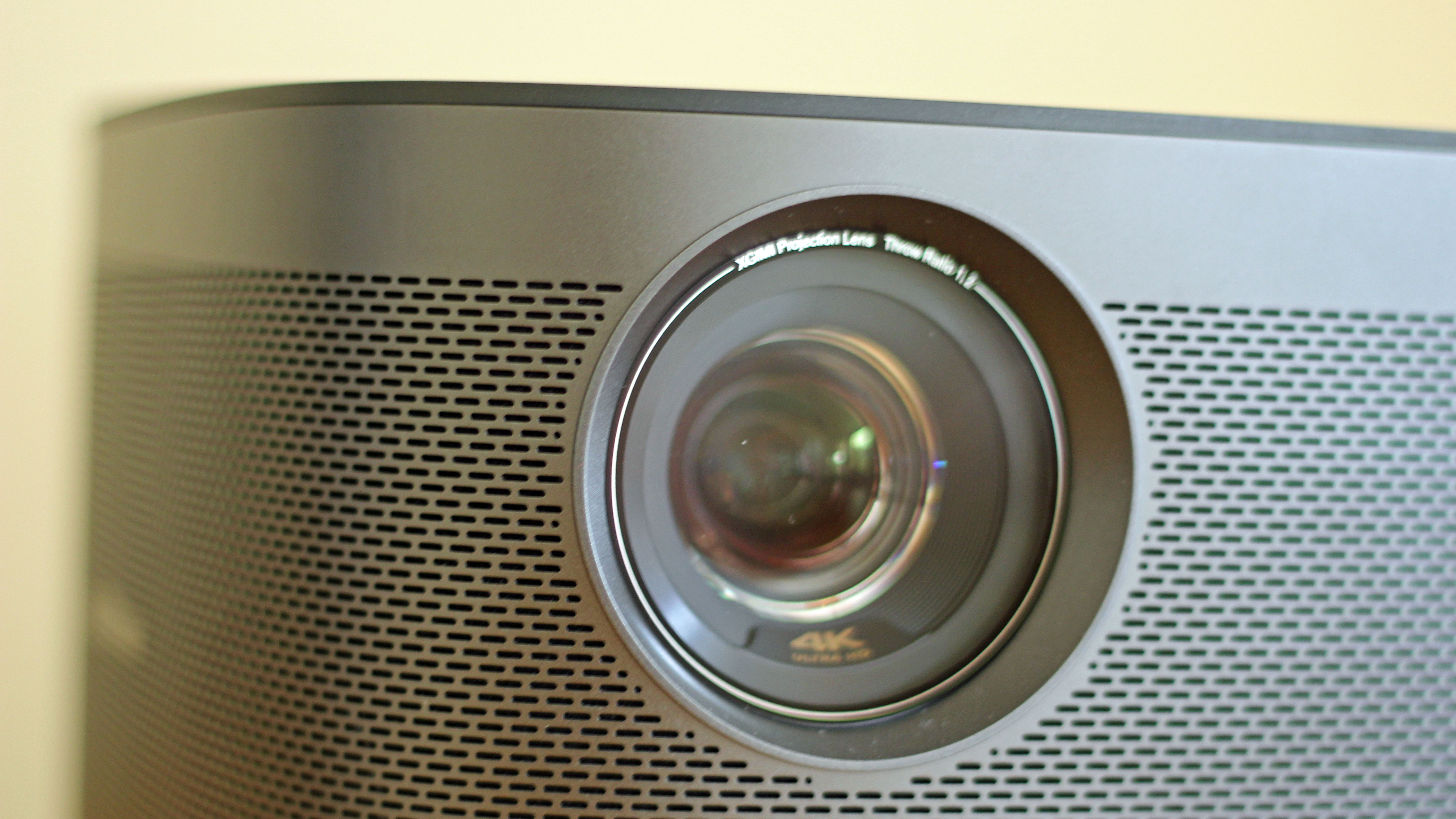
Audio performance
- Built-in 16W speakers
- Tuned by Harman Kardon
- No Dolby Atmos
The sound quality is perfectly acceptable for an evening film, with Harman Kardon tuning ensuring the total 16W output (out of two 8W speakers) pulls its weight.
Vocals, mids and rumbling SFX alike have some impact here, with volume and quality above the 5-10W you’ll find on some basic projector models – though you will need to plug in a separate soundbar or surround sound system to really elevate what’s on offer.
Should I buy the XGIMI Horizon Pro projector?
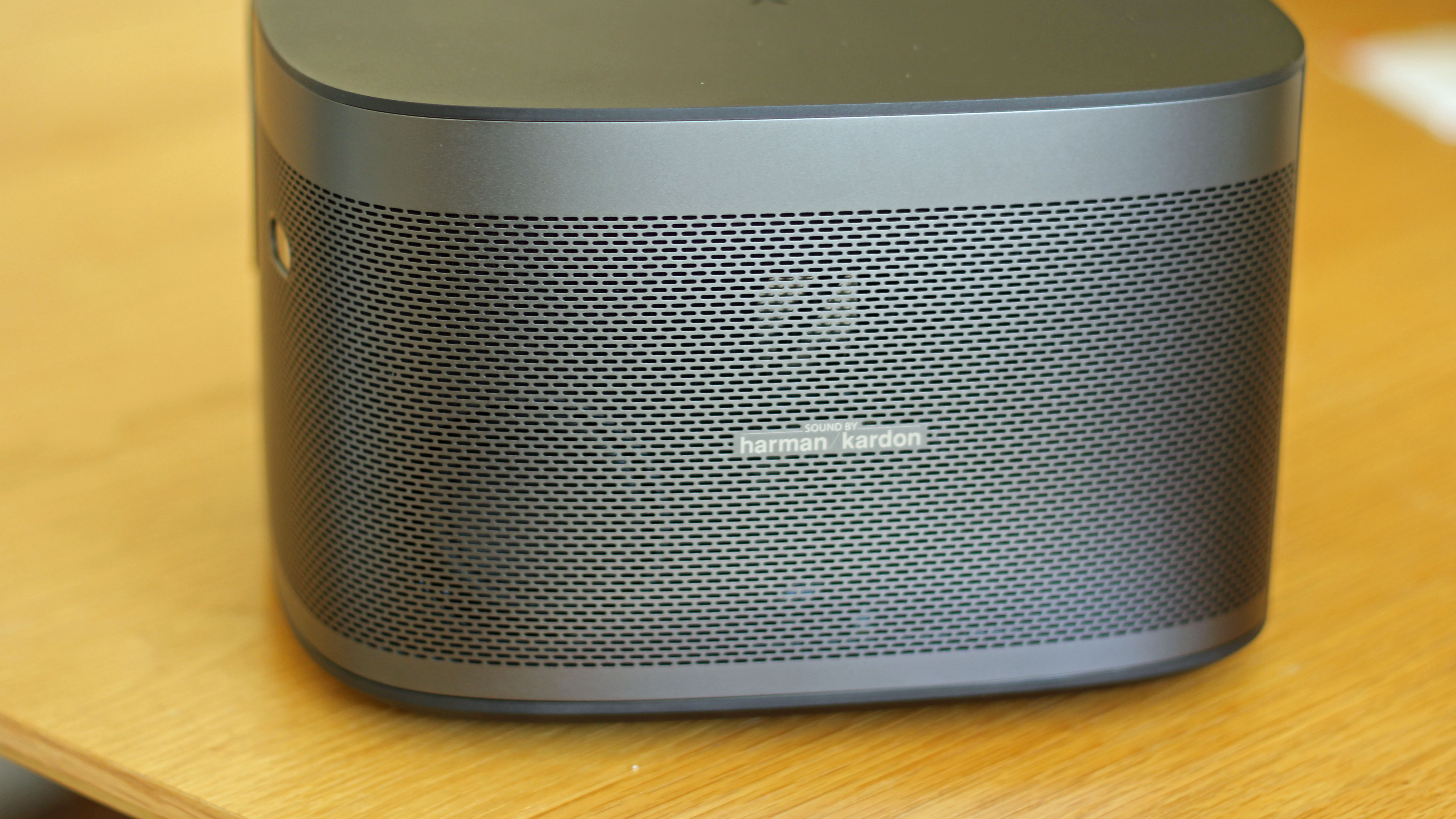
Buy it if…
You’re all about 4K movies
The XGIMI Horizon Pro projector offers incredibly crisp 4K detail, and will be a crowning jewel in a dedicated home cinema.
You want built-in speakers
The 16W speakers are tuned by Harman Kardon, and offer capable sound quality that means you won’t need to find the budget for a separate sound system (unless you want to, that is).
You can’t afford something better
There’s no shame if your budget doesn’t extent to a top-class projector like the Samsung Premiere. At $1,699 / £1,699, the Horizon Pro undercuts a lot of premium models, and may be a suitable compromise for many.
Don't buy it if…
You watch a lot of HD/SDR content
The Horizon Pro does not fare well when upscaling from low-res sources, adding reddish tinges to SDR and layers of grain to HD.
You need an ultra short-throw projector
The projection technology used here means that you’ll need ample distance for a suitably-sized image, which not every home will have. You can settle for a small image at about three feet away, though.
You’re big on Netflix
Netflix isn’t natively supported here. There are some apparent workarounds, but we’d say pick another beamer or utilize a streaming stick that does support the service.
- Best 4K projectors for your home cinema

Henry is a freelance technology journalist, and former News & Features Editor for TechRadar, where he specialized in home entertainment gadgets such as TVs, projectors, soundbars, and smart speakers. Other bylines include Edge, T3, iMore, GamesRadar, NBC News, Healthline, and The Times.
